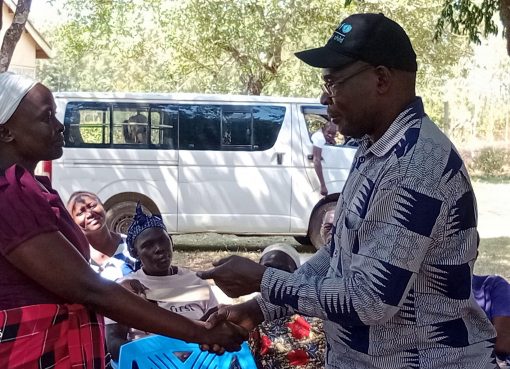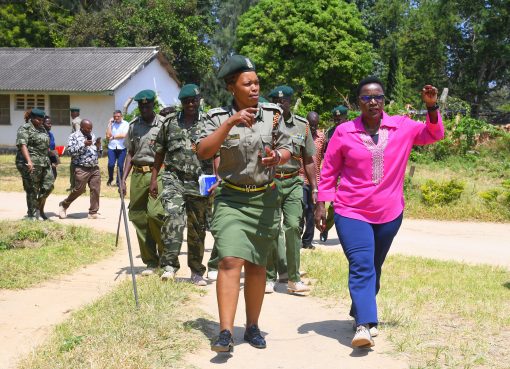A Non-Governmental body wants Kenya to maintain the ban on introduction of Genetically Modified Organisms (GMOs) into the country until their safety is ascertained.
While responding to reports that Kenya is closer to commercializing the GMO cotton (Bt Cotton), the Greenpeace Africa’s Food for Life Campaigner, Claire Nasike says adopting the controversial technology was akin to a coup d’état on the country’s food system.
Nasike argues that while the decision to revive the ailing cotton sector by introducing fast maturing and high yielding varieties was good news, this should not be done in a manner that comprises the natural crop husbandry practices that were eco-friendly and also safe to both humans and animals.
“The push for GMO crops represents a corporate takeover of our food system. GMOs block the real solutions coming from sustainable farming that is addressing the impacts of climate change being felt by farmers and people all over the world.
While it is important to revive the textile industry in Kenya, KALRO and other government agencies should look at encouraging farmers in Kenya to grow conventional cotton varieties that use organic and sustainable ways of controlling boll worm,” said the official in press statement sent to media houses.
Greenpeace further argues that the chances of Bt cotton becoming a game changer in the country was still unknown given the fact that its trial in other African countries such as Burkina Faso where it had been introduced in 2008 ended in disaster for farmers.
According to Nasike, Burkinabe farmers stopped growing the seed sighting high seed prices and poor quality harvests as compared to the conventional cotton.
She now says Kenya government must protect small scale cotton growers instead of giving the big industrial corporations the power to put profits before farmers and the environment.
“Greenpeace Africa urges the government of Kenya to maintain the ban on GMOs. They should invest in sustainable models of agriculture such as ecological farming. Ecological farming combines local farmers’ knowledge with the most recent scientific knowledge to create new technologies and practices that increase yields without negatively impacting the environment,” she added.
A genetically modified organism (GMO) is any organism whose genetic material has been altered using genetic engineering technologies.
A wide variety of organisms have been genetically modified (GM), from animals to plants and microorganisms where genes have been transferred within the same species, across species (creating transgenic organisms) and even across kingdoms.
Through the technology new genes could be introduced, or endogenous genes could be enhanced, altered or knocked out.
Kenya is yet to lift sanctions on importation and use of GMOs into the country since 2012 owing to pressure from ecologists and politicians who advanced that the high end scientific technology could prove a bane to the country’s food safety.
There were also fears that the technology (whose commercialization came to the fore in 1993 in China) could be a leading cause in the development of some forms of cancer.
In 2015, a lobby group calling itself Kenya Small Scale Farmers Forum went to court to bar the State from lifting the ban on importation of GMOs into the country.
In the petition which named Agriculture CS and the AG as first and second respondents respectively, the lobby group argued that various international reports have pointed that both genetically foods and organisms were dangerous to both man and nature.
The petitioner thus asserted that the moratorium should therefore remain until the public is educated on its effects.
Greenpeace is an independent global campaigning organization that seeks to change attitudes and behavior, to protect and conserve the environment besides promoting enduring peace.
The organization was launched in 1971 when a group of concerned citizens were outraged by the United States government’s insistence on nuclear testing on the Alaskan island of Amchitka.
The organization operates in 40 countries across Europe, the Americas, Asia, the Pacific and Africa.
By Samuel Maina



